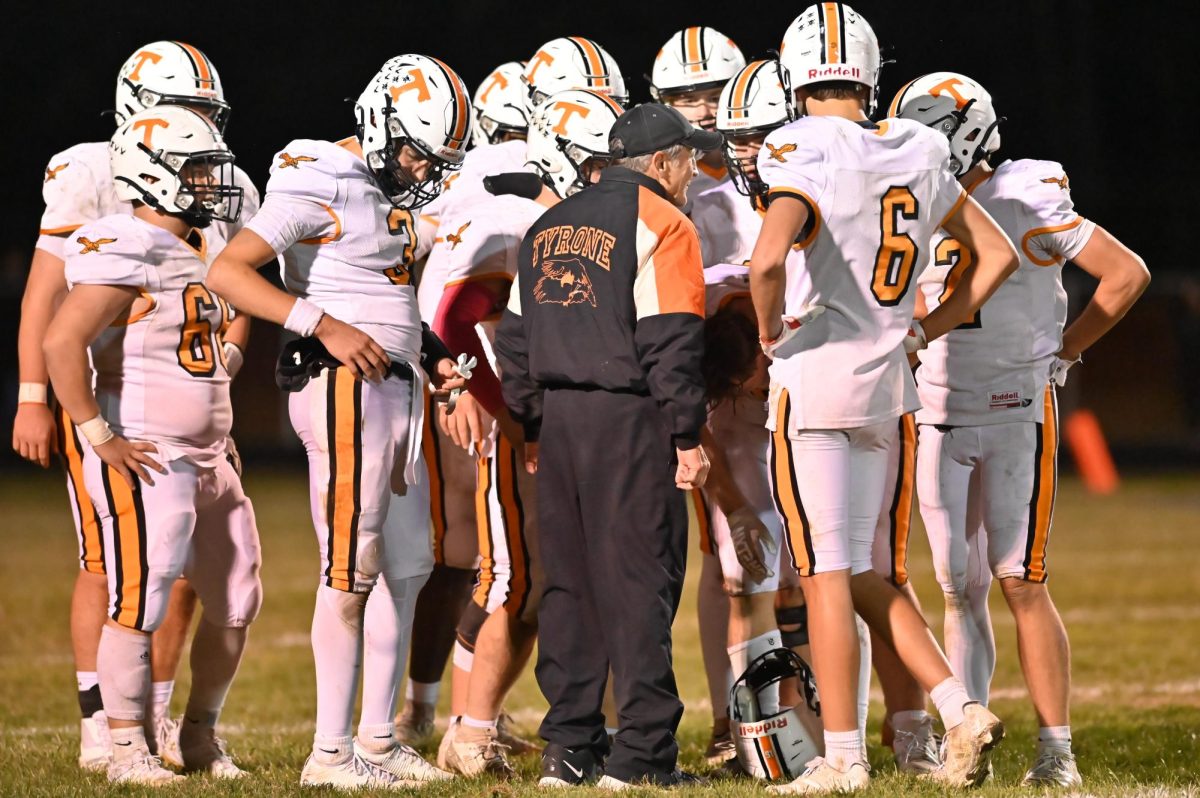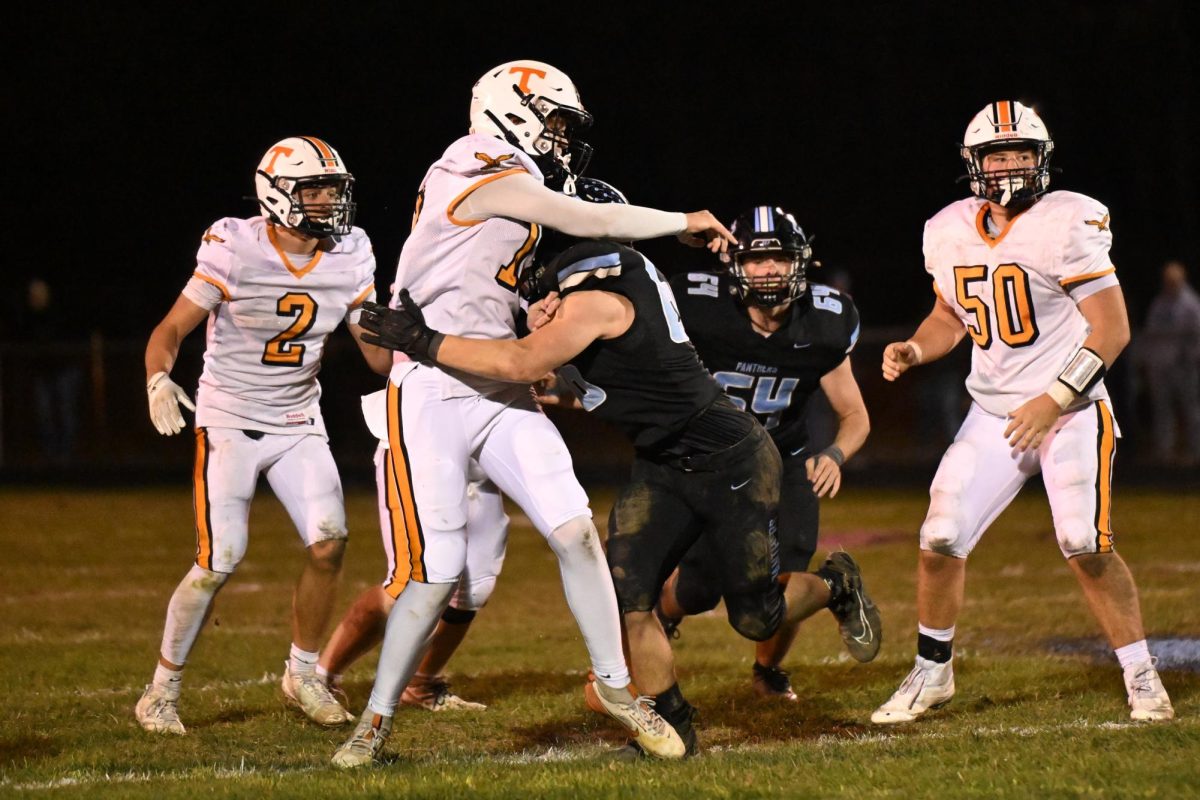“One nation, Indivisible….”
April 6, 2018
Now some people may not realize the title of this editorial is a quote from the Pledge of Allegiance. If you did realize it, you will see that the words “under god” are not present. Why did I do that you ask? This is how the pledge originally was and should have still been. The words “under god” were never meant to be in the Pledge of Allegiance, and its existence goes against the beliefs of atheistic citizens and is unconstitutional.
First of all, to understand the scope of why adding “under god” to the Pledge of Allegiance was unconstitutional, we must look at the first amendment, more specifically the “Establishment Clause”.
The Clause states the following;
“Congress shall make no law respecting an establishment of religion, or prohibiting the free exercise thereof.”
The importance here is that Congress can make no law respecting an establishment of religion, as in they cannot make any laws promoting or obstructing religious beliefs. Using “under god” in the pledge of allegiance symbolizes the nation recognizes the existence of an omniscient being by stating the nation is “under god.” This almost directly obstructs the religious belief of atheistic citizens as it goes against their belief that there is no omniscient being.
Now some people may say this does not matter, as the pledge of allegiance is not mandatory to be said, so they can simply not say it. Although that may be true, it still matters according to the Supreme Court.
In the case of Engel v. Vitale in 1962, the subject of prayer in school was addressed: “…government-written prayers were not to be recited in public schools and were a violation of the U.S. Constitution and the Establishment Clause of the first amendment. This was decided in a vote of 6-1… The Court rejected the defendant’s arguments that people are not asked to respect any specific established religion; and that the prayer is voluntary. The Court held that the mere promotion of a religion is sufficient to establish a violation, even if that promotion is not coercive. The Court further held the fact that the prayer is vaguely worded enough not to promote any particular religion is not a sufficient defense, as it still promotes a family of religions (those that recognize an “Almighty God”), which still violates the Establishment Clause.”
As you can see, our judicial body of our great nation has ruled that even voluntary activities can violate the Establishment Clause if it promotes the belief of a “God”.
Now if you change the words from prayer to Pledge of Allegiance, you would see it falls under the same category as the prayers in terms of recognizing a supreme being and being voluntary. The question now remains, why do we have something that even the Supreme Court, the greatest judicial body in our great nation, indirectly ruled unconstitutional?
Some people believe the fact that “under god” in the Pledge of Allegiance is no big deal, and it offends such a small percentage of the population that it doesn’t matter. According to a news article from Vox based on the findings of psychologists Will Gervais and Maxine Najle, though, results show that there may be more atheists in the country than believed. The results of surveys they designed to reveal “hidden” atheists (People hesitant to make their beliefs public), estimate 26% of Americans do not believe in god, and that 1 in 3 atheists in the country does not feel comfortable disclosing their belief. If their findings are accurate, that means approximately 84,682,000 Americans are Atheists, and 1/3rd of them are unwilling to disclose their belief in fear of attracting negative stereotypes associated with Atheism.
Why do we have a Pledge that can attract negative attention to someone if they refrain from stating it, yet by doing so they are forced to state they believe in a god?
Atheistic citizens around the nation, and especially students, are faced with a choice: say a pledge that goes against beliefs, or be socially ostracized from society on the grounds of not being “patriotic”.
There is nothing patriotic about the Pledge of Allegiance, so think carefully next time they ask you to join in the Pledge of Allegiance whether or not it is something you can still support knowing what you do now.











Meghan McMullen • Apr 10, 2018 at 11:56 am
stay woke
Benedict DelBaggio • May 1, 2018 at 11:29 am
what?